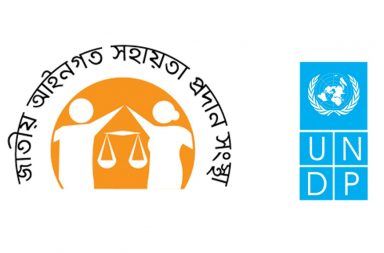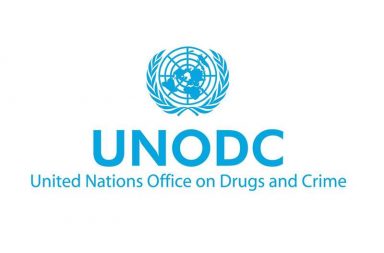In recent years, Bangladesh has experienced a notable shift towards oligarchic structures, where a small group of individuals wield significant economic and political power. This development has profound implications for the nation’s governance, economic equity, and democratic processes. Following the ousting of former Prime Minister Sheikh Hasina amid widespread protests, an interim government led by Nobel laureate Professor Dr. Muhammad Yunus has assumed leadership. The interim government facing the monumental task of rebuilding the nation amidst deep-seated issues of economic inequality and political instability. To effectively address these challenges, the interim government must prioritize a comprehensive agenda focused on dismantling the existing oligarchy, promoting inclusive growth, and restoring democratic principles.
The rise of the oligarchy in Bangladesh is a relatively recent phenomenon. It is observed that over the last 10 to 15 years, a class of wealthy and politically powerful individuals has emerged, controlling significant portions of the country’s resources and influencing its policies. This development marks a significant departure from the vision of a just and equitable society that the nation’s founders had. This has led to a situation where a small number of families control a large portion of the country’s wealth.
Several factors have contributed to the drastic rise in wealth inequality in Bangladesh. These include inefficient government institutions, corruption, a lack of accountability, poor policy and project implementation, and inconsistencies between policy formulation and development planning. The existing economic policies have also played a significant role by favoring the super-rich and creating an environment where wealth is concentrated in the hands of a select few. This has resulted in a situation where only 1.31% of the total income goes to the poorest 10%, while 41% goes to the richest 10%, highlighting the stark income disparities.
The oligarchs have played a pivotal role in exacerbating Bangladesh’s economic challenges. They have gained control over key sectors of the economy, stifling competition and innovation, and manipulating markets to their advantage. Their involvement in widespread corruption, including money laundering and trade misinvoicing, has drained the country’s resources. At the same time, they have also benefitted from flawed financial policies such as capped lending rates and artificially inflated currency values, allowing them to accumulate wealth at the expense of the broader economy.
The government of Sheikh Hasina faced numerous criticisms regarding its economic policies. The Awami League’s (AL) economic policies have been criticized for being biased towards the super-rich, creating government-sponsored monopolies, and neglecting social sectors such as education and healthcare. The AL government was also accused of engaging in “mega corruption” through large-scale development projects, using them as a means to funnel wealth to the oligarchy, rather than serving the public good. The government also faced criticism for manipulating economic data, including per capita income, growth, inflation, and unemployment rates, to portray a more positive picture than reality.
The influence of the oligarchy has had a far-reaching negative impact on Bangladesh’s social and economic progress. Economically, it has created a system of deep inequality, where a small elite controls a significant portion of the nation’s wealth and resources, while the majority struggles with limited opportunities. Socially, the oligarchy has undermined the democratic process and public institutions by promoting corruption and a lack of accountability. The political unrest and economic instability have severely impacted ordinary citizens, particularly small traders and daily wage earners, and also contributed to the brain drain as many talented individuals may be discouraged from working in a system that does not reward merit.
The Awami League’s (AL) economic policies have been heavily criticized for favoring oligarchs through several specific mechanisms, which have had a detrimental effect on Bangladesh’s economy. Here’s a more detailed look at these policies:
1. Biased Economic Policies: The AL’s economic policies are accused of being intentionally biased towards the super-rich, who already control the means of production, capital, and land. This bias has led to a situation where the wealthy are further advantaged, exacerbating income inequality. Rather than creating a level playing field, government policies have been designed to favour those with existing economic and political power.
2. Government-Sponsored Monopolies: Instead of fostering a competitive market economy, the AL government is accused of creating government-sponsored monopolies. This has allowed a select few individuals to control key industries, such as the gold and banking sectors, effectively stifling competition and innovation. These monopolies ensure that oligarchs can maintain their dominance and extract wealth without facing market challenges.
3. Artificially Inflated Currency: The central bank’s policy of keeping the value of the Bangladeshi Taka (currency) artificially inflated has been criticized for exacerbating inflation. By artificially inflating the currency, the government created a scenario where imports became cheaper, and exports became more expensive, which damaged the balance of trade. This policy has also made it more difficult for businesses to compete and has contributed to a lack of economic diversification. It is seen as a tool used to benefit the wealthy elite by giving them an unfair advantage in international trade.
4. Capped Lending Rates: The government’s decision to cap lending rates at 9% for over three years is another policy that favoured oligarchs. This policy allowed businesses, particularly those connected to political elites, to access funds at real interest rates of nearly zero. This cheap credit enabled the well-connected to expand their wealth while worsening inflation. This policy undermined the financial system by artificially lowering the cost of borrowing for the rich while hurting ordinary savers and the economy.
5. “Mega Development” Projects: The government’s prioritization of large-scale infrastructure projects, often referred to as “mega-development” projects, has been criticized as a vehicle for “mega corruption” and for funnelling wealth to the oligarchy. These projects are often implemented without adequate transparency and oversight, which enables the elite to profit from inflated contracts and kickbacks. This practice has led to a massive outflow of money and has left the country with unsustainable debt. These projects are not always beneficial, do not always deserve equal priorities, and may not provide a good return on investment.
These policies, combined with a lack of democratic accountability and good governance, have created an environment where oligarchs can flourish at the expense of the general population. The result is a system of deep inequality and economic instability that needs to be addressed through comprehensive reforms.
To address inequality and promote inclusive growth, the interim government must take several steps including:
A. Democratic Restoration: The most critical step is restoring genuine democracy by dismantling the entrenched oligarchic networks. This involves breaking the hold of a small group of beneficiaries in various sectors. The current political system is described as a “competitive authoritarian” one, where the ruling party undermined the opposition and tilted the playing field in its favour. This system needs to be replaced with one where people will enjoy their rights and live with honour and dignity without discrimination. The restoration of democracy is not just about holding elections, but about ensuring that all citizens have a voice in governance and that the government is accountable to the people.
B. Institutional Reforms: Strengthening public institutions and ensuring their independence and accountability are crucial. Currently, institutions are often run by people who are obedient to the government rather than being innovative or independent. The judiciary, the Anti-Corruption Commission, and the Competition Commission are all seen as corrupt. These institutions must be reformed to serve the public interest rather than the interests of the ruling elite. The interim government is already pursuing reforms in key sectors such as the electoral system and the police. The Financial Institution Division under the Finance Ministry should be abolished to ensure minimal government influence in the banking sector.
C. Anti-Corruption Measures: Implementing strong anti-corruption measures and ensuring transparency in government processes is essential to prevent illicit activities. Corruption has been identified as a major issue in the banking sector, with significant losses due to trade misinvoicing. The lack of accountability has allowed oligarchs to engage in corruption and money laundering with impunity. A zero-tolerance policy towards corruption needs to be implemented, and those responsible for corruption should be held accountable, regardless of their political connections.
D. Financial Policy Overhaul: Overhauling financial policies is necessary to create a level playing field for all businesses and to end policies that artificially inflate currency values and provide cheap credit to the elite. The current system has allowed the super-rich to control capital and launder funds abroad, dampening the economy. The policy of artificially inflating the currency should be abolished, and a market-based exchange rate system should be adopted. Capped lending rates also need to be revisited to ensure that credit is allocated efficiently and not just to the well-connected. A fiscal responsibility law should be passed to ensure fiscal discipline, transparency, and long-term sustainability of public finances.
E. Focus on Social Sectors: Increasing investment in education, healthcare, and other social programs is crucial to ensure that all citizens have access to essential services. Currently, the allocation of resources to education and healthcare is inadequate for a developing nation. There is a need to improve the quality of education and eradicate the stigma associated with technical and vocational training. The educational system should be reformed to create decent jobs. The government should prioritize spending on health and education instead of the current emphasis on infrastructure, which has primarily benefited the elite.
F. Economic Diversification: Reducing the economy’s over-reliance on the ready-made garments industry and remittances is vital to make it less vulnerable to external shocks. The current economic growth is disproportionately coming from the garment industry, with little value addition. There is a need to diversify the economy and promote the development of other sectors. The economy of Bangladesh is import-dependent and undiversified, which is a structural weakness.
G. Data Reliability: Introducing a reliable data mechanism is essential so that producers can make informed decisions. Currently, data is not reliable because of tampering by some ministers to show high per capita income and growth, and low inflation and unemployment. A reliable data mechanism is needed to ensure the integrity and honesty of economic policy and to help producers make proper decisions. The government was not serious about the integrity and honesty of its policies. The fiscal year should be restructured to start in January instead of July.
Implementing these reforms will require a commitment to good governance, democratic accountability, and a focus on the needs of all citizens, not just the wealthy elite. The political leadership needs to be attentive to the ways that a transition to a new and effective democratic system could become bogged down. The interim government must make clear political progress with transparent goals and timelines to succeed.
According to critics, the Awami League’s economic policies have had a detrimental effect on Bangladesh’s economy. The policies have been described as biased towards the super-rich, creating government-sponsored monopolies, and lacking fiscal responsibility. The alleged “mega corruptions” in development projects and the manipulation of economic data have also exacerbated the country’s economic challenges and caused a loss of confidence in the government’s economic leadership.
The interim government, led by Professor Dr. Muhammad Yunus, faces a daunting challenge in rebuilding Bangladesh. By addressing the root causes of wealth inequality, such as the influence of the oligarchy and flawed economic policies, the country can move towards a more inclusive and sustainable future. This will require a combination of institutional reforms, anti-corruption measures, and a commitment to promoting genuine democracy and social justice. The focus must shift from policies that benefit a select few to strategies that support the well-being and prosperity of all Bangladeshis.
Author: Md. Abdullah Al Mahmud is the Founder and CEO of Thriving Skills and Assistant Professor at Manarat International University, Dhaka. He can be reached in LinkedIn.



